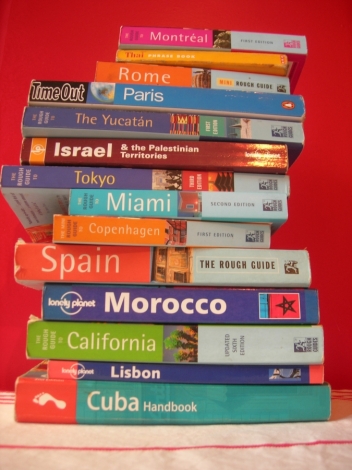Don't miss out on the best jobs!
Subscribe to HelpGoAbroad and weekly we will sent you an email with latest job posts. Provide your email address below
There’s a huge array of mistakes one can make when traveling, studying, working or volunteering abroad, and many regrets can bubble up after returning home and looking back on your experiences. The majority of them are almost irrelevant, or not worth the worry. The epic failures become great stories, and the real, detrimental mess-ups are lessons for the future. One magical aspect of getting out into the world is that you’re sometimes required to put your life into the hands of fate and let your path unfold as it will. Sometimes your itinerary falls apart and you’re forced to improvise, or something pops up that has to be worked around. No matter how organized and diligent you are, when visiting or living in a foreign place you will be forced to confront issues you never imagined before you arrived. Flexibility, adaptability, and good sense of humor are key tools in navigating the waters when things get a little rough, and with the right attitude, no “mistakes” will be worth dwelling on later. When asking yourself whether or not you should do something, if it’s worth the time/money/hassle or whatever it is that might be holding you back, always remember that it most likely is worth it. The biggest regrets are the experiences that you passed up on.
The only regret that has stuck with me after traveling abroad, the only thing I sorely wish I had done that I slacked off on, is research. Many travelers will go to a new country without any idea of the places history, current issues, customs, or language, and although anyone can get by without knowing much in these areas, a little extra effort to learn before you board the plane will not only help you avoid some of those little mistakes I mentioned earlier, but will enrich your time abroad, deepen your affinity with the country, and garner respect from local people that will open doors to even greater experiences.
History
There are many great resources to learn more about the history of the place you are visiting. Culturegrams are a great resource, but you must be a subscriber. Wikipedia can be informative. The Lonely Planet guides hit all the key points. Don’t just skip to the hotels and tourist attraction sections. Those pages are filled with interesting and relevant information.
When you have a bigger picture of the places you are visiting or moving to, your connection to that place will be deeper and more meaningful, and you may discover a few things that will aid you in your travels. Attractions and cities you may not have considered visiting before may hold more historic importance than you thought.
Current Events
Any traveler should be aware of major events happening in a country they hope to visit, especially if there is political or social unrest. Sometimes it’s best to avoid a place if there are riots or protests going on. But there’s usually a lot of interesting things going on around the world that aren’t particularly newsworthy (or that don’t relate to your safety or well-being), and it takes a little more effort to get informed on those topics. Are there any outstanding artists or activists from the country you are visiting that are worth looking into? What’s the political atmosphere in the country? Knowing a bit more about pop culture, politics, and the arts that are currently popular in a country will allow you to communicate more easily with local people, and you may make friends more easily.
Customs
Some places have strange customs. Really strange. Some places have taboos that you need to be aware of to avoid offending people. Showing the bottom of your feet to someone in Thailand is comparable to the middle finger. Touching a child on the head is incredibly rude. When eating a group meal, it’s rude to take large portions all at once. Instead, taking just enough for two or three bites and passing the dish onwards is the correct etiquette. Knowing these things before you arrive, instead of embarrassing yourself or offending someone first, will ease your assimilation and gain you respect. Many local people will be more willing to help or even just have a conversation with a foreigner that is clearly putting in an effort to be respectful.
Language
Learning a foreign language is difficult, but I’ve come across many travelers who don’t know a single word of the language spoken in the country they are traveling abroad in. The basics, “hello” and “thank you,” are a great place to start, but there are a few other terms that will be really helpful to know.
- Know how to thank someone for a meal, or say that something is delicious.
- Know how to barter. Bartering is very common in many countries all over the world, and if you know how to ask for a lower price in the local tongue, you are more likely to get it. Of course, you should also know if bartering is considered rude in the place you’re visiting before trying.
- Know how to order food and drinks.
- Know how to say that you do not speak the language, and how to ask if someone else speaks English (or your native tongue). It will make native speakers more inclined to help if you ask kindly in their own language.
- Know how to apologize and say “excuse me.”
- Try to learn some basic numbers to help with currency.
These are just a few examples of useful phrases to learn. Another one is knowing how to say “How do you say…” so that you can continue to learn more and more.
Sign in to publish a comment



Be the first to comment on this post.